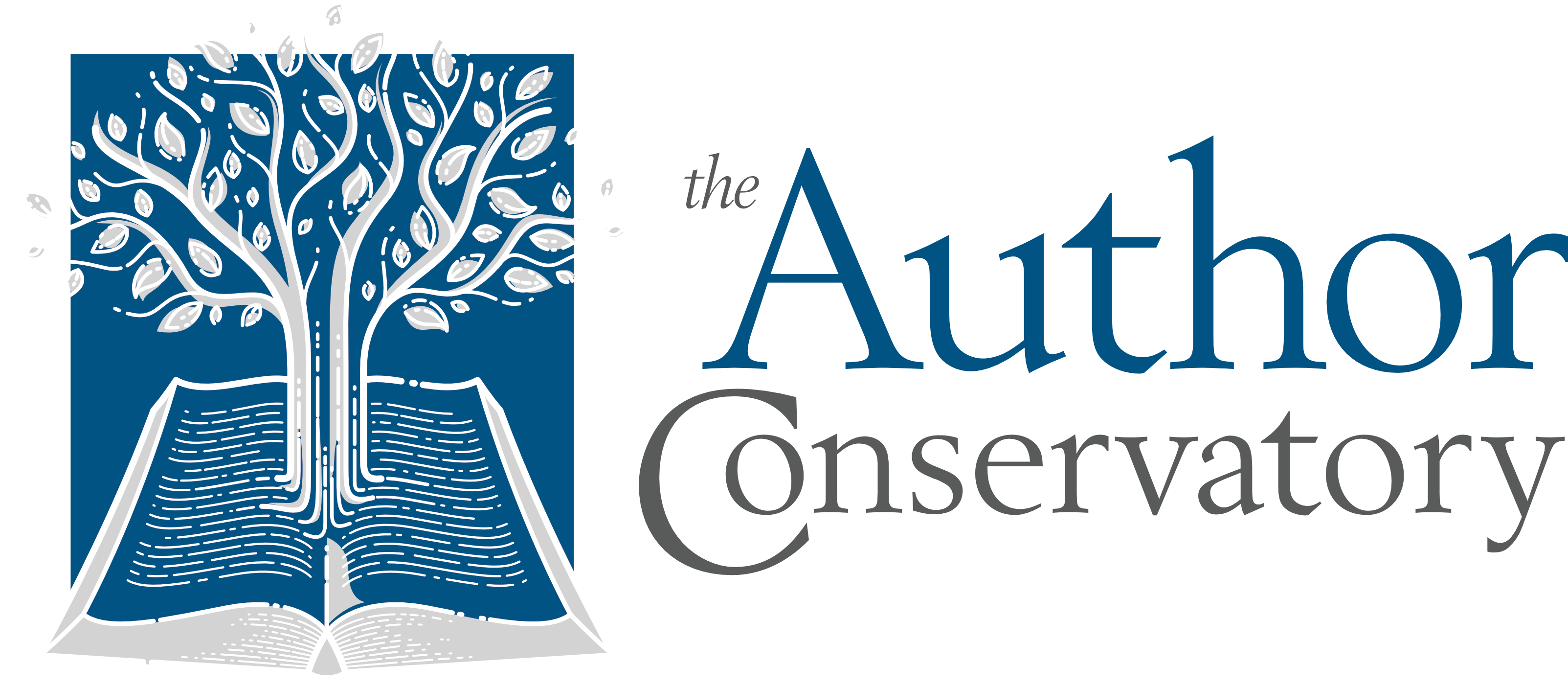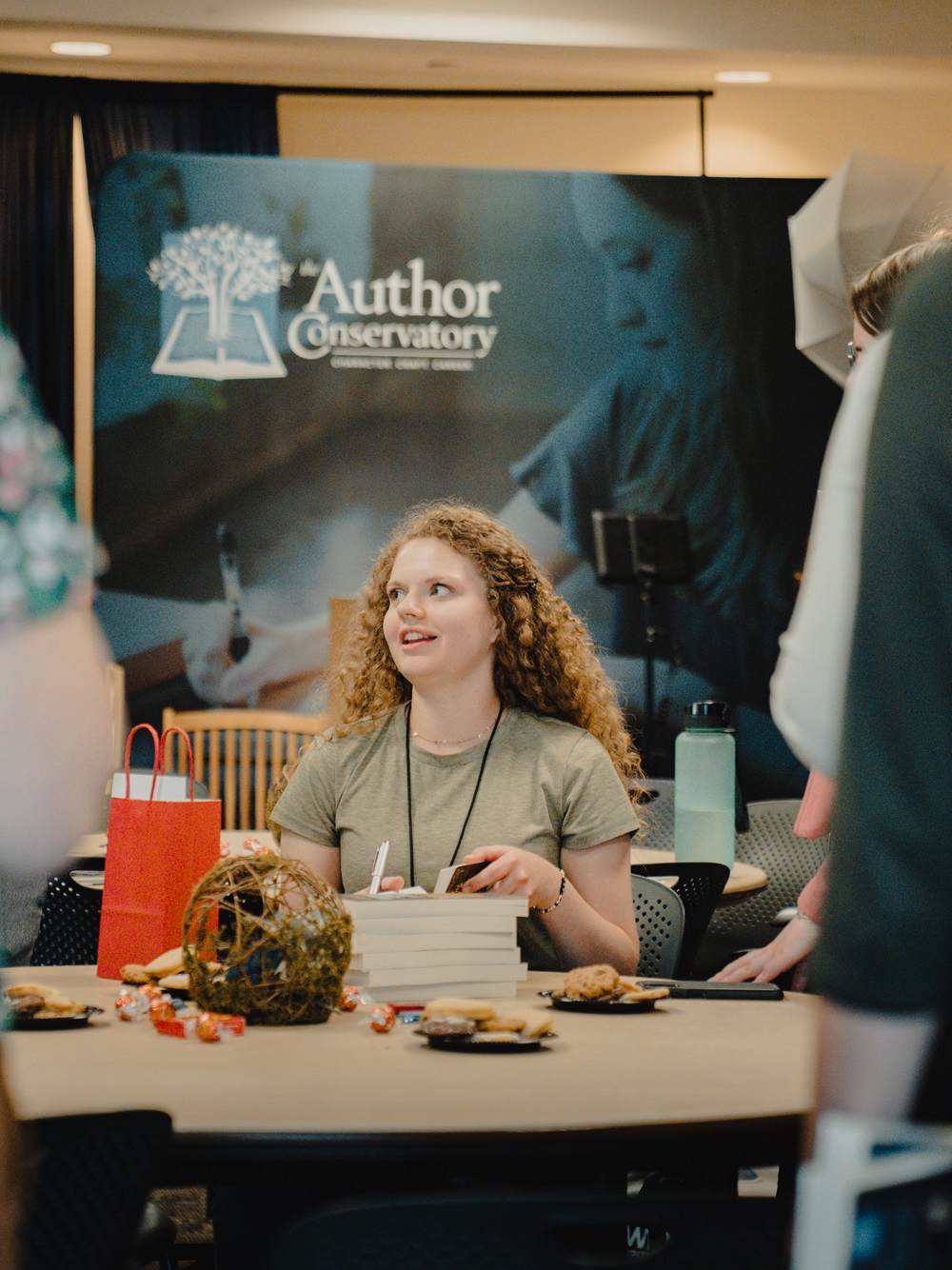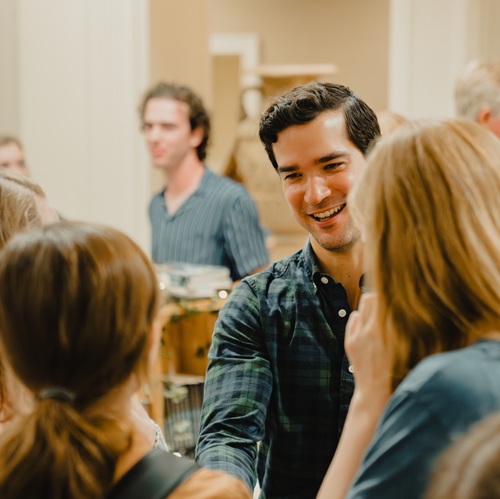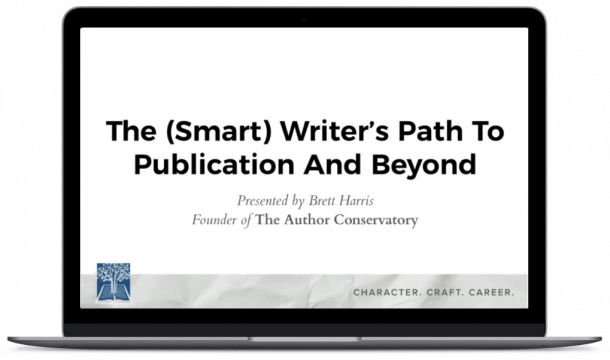The Author Conservatory’s Fiction Writing Program
Learn advanced writing and business skills by working one-on-one with experts in the field.
The Author Conservatory’s fiction writing program offers an immersive, hands-on experience tailored for aspiring authors who want to learn one-on-one from experienced writers while building a sustainable, long-term career.
Whether you’re a parent searching for a meaningful educational path for your child or a student seeking a strategic, faith-based approach to becoming an author, our fiction writing program offers the ideal combination of creative development and practical, business-oriented training.
HOPE’s Experience in our Fiction Writing Program:
Not A “One-Size-Fits-All” Teaching Style
At the Author Conservatory, most of a student’s learning doesn’t come from lectures or textbooks, but from the personal coaching and feedback they receive from instructors.
Here’s how our LIFT Model works:
- Learn. Students go through several trainings to prepare for the next step they need to take with their writing or business.
- Implement. Students “learn by doing” and work on practicing the skill they just learned with real-world assignments.
- Feedback. Students bring their work to a writing or business professional for personal feedback and coaching.
- Try Again! Few students get it right on the first try. We have them bring their work to us as many times as necessary until they’re ready to move onto the next step.
Here are some of the different ways our students receive professional coaching and feedback from our instructors:
Writing Feedback
Bring your writing to us for live developmental feedback.
Business Coaching
Get consistent feedback and coaching on your business ventures.
Craft Feedback
Submit writing samples for feedback on your prose and style.
Instructor Office Hours
Get additional help & coaching multiple times a week.
Visiting Expert Office Hours
Receive additional advice from visiting industry professionals.
Manuscript Assessments
Receive full manuscript assessments from professional editors.
Our Curriculum
THE WRITING TRACK
Graduation Objectives
Our goal is for graduating students to have mastered the fundamentals of storycraft, drafted at least two full-length novels, launched a short story in an exclusive Conservatory anthology, worked with professional editors, learned to meet publishing-level deadlines, and gained the experience needed to pitch agents & publishers.
Year One Objectives
By the end of Year One, students will be able to:
- Develop a high-concept story premise.
- Craft a compelling story synopsis.
- Outline a full-length novel using the Three-Act Story Structure.
- Build compelling and memorable characters that stick with readers long after they finish.
- Possess a deep understanding of pacing and building narrative stakes.
- Learn how to reverse outline their novel to hone in on the problems.
- Draft a 50K – 100K word novel from a comprehensive outline.
- Receive and incorporate professional critique on their projects.
Year Two Objectives
By the end of Year Two, students will be able to:
- Complete a comprehensive round of critique on their own novel, and also offer in-depth feedback (from story execution to craft skill) on other students’ projects
- Receive and incorporate high-level editorial feedback from professional editors.
- Develop their own unique writing voice and style.
- Maintain deadlines and draft, polish, edit and revise a novel alongside other students in a Critique Group.
- Craft and polish a short story they’ll publish in Year Three in one of our exclusive Author Conservatory anthologies.
Year Three Objectives
By the end of Year Three, students will be able to:
- Have a professional query to pitch to agents and publishers that will stand out from the crowd.
- Write a killer book proposal and practice pitching to agents.
- Understand the ins-and-outs of working with an agent, editor, and publisher.
- Navigate book contracts and learn the key elements of a fair deal.
“The Author Conservatory really has made all the difference for me! I have loved getting individualized mentorship for my projects.”
THE BUSINESS TRACK
Graduation Objectives
Our goal is for graduating students to have put together a full financial strategy to support themselves as they write, and to already have a business they grew during their time in the program that they can use as a part of that strategy.
Year One Objectives
By the end of Year One, students will be able to:
- Understand the value of entrepreneurship within the author business model and develop a solid career strategy.
- Brainstorm viable business ideas, pick the right pricing strategy, and develop compelling key distinctions and an elevator pitch.
- Perform professional market research and confirm market-demand for a product/service before launching a business.
- Start a pop up business and actually get paid for their products and services.
- Develop a marketing strategy and generate positive customer reviews/testimonials.
Year Two Objectives
In Year Two, students will pursue one of two sub-tracks that best fits their personal situation
Entrepreneur Track – By the end of Year Two, these students will:
- Continue to grow their pop-up business from Year 1 or transition to a more substantial business focused on greater long-term profitability.
- Implement a scalable marketing system that will double their business income from Year One.
- Translate their business skills to book marketing skills and start building their author platform.
- Learn the networking skills they’ll need for their writing career.
Experience Track – By the end of Year Two, these students will:
- Apply their business skills in real-world applications as an employee or consultant for another company.
- Implement a scalable marketing system that will double their business income from Year One.
- Translate their business skills to book marketing skills and start building their author platform.
- Learn the networking skills they’ll need for their writing career.
Year Three Objectives
By the end of Year Three, all students will be able to:
- Create and implement a high-level marketing plan as part of their Author Conservatory Anthology launch.
- Understand key business models that can support a long term writing career.
- Learn the tools and strategies needed to double, triple, even quadruple the revenue each book produces.
- Brainstorm both low and high ticket offers and services to compliment their author business.
- Implement nonfiction marketing strategies to grow their author platform further.
If students are in the Entrepreneur Track, they will also:
- Develop a roadmap to turn their business into a full time income and take on a team to free up their time.
- Build a kingdom business through generosity and a heart-centered vision.
“Before I joined The Author Conservatory, I wasn’t confident about my direction and questioned where my focus should be. Now I am working through a solid, personalized, and specific plan. I know where I’m going and what I need to work on.”
Browse Our Full Curriculum
Download our syllabus for more details on what we teach.
An Average Student’s Week in our Fiction Writing Program
The Conservatory isn’t like a traditional college program. So what does the average week look like for an Author Conservatory student?
Each week’s schedule will depend on how much time you can invest and what specific goals you’re looking to meet, but the list on the right describes what you can generally expect.
Students are expected to spend an average of 15-20 hours per week on the program (which includes personal writing time).
However, the more time you invest, the more we can help you hone your skills and set you up for future success.
First, you’ll watch pre-recorded trainings that walk you through your next steps and introduce your assignments. These sessions provide the foundational knowledge needed to advance in your writing and business development.
Next, you’ll spend time putting what you’ve learned into action. The assignments are real-world tasks, helping you not only write novels but also start and grow your own business.
Once you’ve worked on these steps, you’ll bring your work to your writing and business coaches to get professional feedback on your work.
Additionally, you’ll have access to Office Hours calls for additional coaching and support from your instructors, or from outside experts (e.g. Christopher Paolini or Andrew Peterson).
Finally, you’ll engage with the other students in the program, building lifelong friendships and sharpening each other as storytellers.
Work with Professional Authors & Entrepreneurs
One of the most valuable aspects of The Author Conservatory is the opportunity to work one-on-one with professionals who understand both the artistic and faith-based elements of writing as a Christian.
Our instructors are not just educators—they are published authors, editors, and entrepreneurs who offer insights that can only come from years of experience in the industry.
The mentorship students receive at The Author Conservatory extends far beyond the fiction writing program. Our instructors care about the personal lives of our students and want to help them grow as people during their time in the Conservatory.
Join the Author Conservatory Today
The Author Conservatory is more than just an online writing program—it’s a community of like-minded Christian authors who are passionate about crafting stories that reflect their faith while learning how to build sustainable, long-term writing careers.
If you’re ready to grow in both your craft and your business acumen, we invite you to apply to our fiction writing program.



